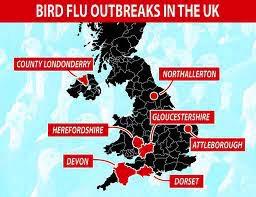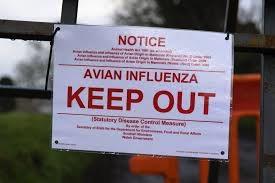 Responding to a call for “radical restructuring of the poultry farming sector” by Compassion In World Farming, Richard Griffiths, CEO of the British Poultry Council, advocated vaccination in combination with biosecurity to suppress and prevent avian influenza. In response to the release he stated, “Conflating disease control with an opinion on how we produce food in the U.K. is an irresponsible way of approaching our primary concern here, that is ensuring the health of our birds and the sustainability of a world-class food system.”
Responding to a call for “radical restructuring of the poultry farming sector” by Compassion In World Farming, Richard Griffiths, CEO of the British Poultry Council, advocated vaccination in combination with biosecurity to suppress and prevent avian influenza. In response to the release he stated, “Conflating disease control with an opinion on how we produce food in the U.K. is an irresponsible way of approaching our primary concern here, that is ensuring the health of our birds and the sustainability of a world-class food system.”
Compassion In World Farming along with other welfare activist groups have seized upon avian influenza as an issue to oppose intensive livestock production as occurred in the U.S. in 2015.
There is some substance in the statement by Peter Stevenson, Chief Policy Advisor to Compassion in World Farming who stated, “Bird flu is like a ticking time bomb. Unless we wake up and take urgent action we will simply be unable to stop its rapid spread across the globe or reduce the risk of a serious human pandemic developing.” In fact HPAI has been a panornitic disease for three years and there is a small but scientifically plausible risk of a zoonotic strain emerging.
Irrespective of the number of birds in a flock or their density or housing, all chickens, turkeys and domestic waterfowl are highly susceptible to avian influenza that is introduced into areas by migratory waterfowl and marine birds. The large number of backyard and small flocks infected with HPAI during the 2022 epornitic points to the fact that HPAI is an equal opportunity pathogen. The difference between small flocks and large complexes relates to the number of birds affected and the financial consequences of introducing infection.
 As with all activist welfare organizations Compassion in World farming deprecates intensive livestock and poultry production but offers no alternative to replace the current availability of suitably priced egg and meat from the world’s poultry producers.
As with all activist welfare organizations Compassion in World farming deprecates intensive livestock and poultry production but offers no alternative to replace the current availability of suitably priced egg and meat from the world’s poultry producers.